Cell Reproduction -> excretion
Process of Excretion
Excretion involves the removal of waste products and harmful substances from the body. This process occurs through several mechanisms including:- Urination: The kidneys filter waste products from the blood to produce urine, which is then excreted from the body through the urinary system.
- Defecation: Solid waste products are eliminated from the body through the process of defecation, which involves the expulsion of feces from the digestive system.
- Perspiration: The skin plays a role in excretion by eliminating certain waste products through sweat glands.
- Respiration: The lungs remove carbon dioxide, a waste product of cellular respiration, from the body during the process of breathing.
Organs Involved in Excretion
Several organs play a key role in the process of excretion:- Kidneys: The kidneys filter waste products from the blood and regulate the balance of fluids and electrolytes in the body.
- Urinary Bladder: This organ stores urine before it is excreted from the body through the process of urination.
- Large Intestine: Solid waste products are stored in the large intestine before being eliminated through the process of defecation.
- Skin: Sweat glands in the skin help eliminate certain waste products through the process of perspiration.
- Lungs: The lungs remove carbon dioxide, a waste product of cellular respiration, from the body during the process of breathing.
Importance of a Healthy Excretory System
Maintaining a healthy excretory system is essential for overall health and well-being. Some key reasons why the excretory system is important include:- Waste Removal: The excretory system helps remove waste products and toxins from the body, preventing the build-up of harmful substances.
- Fluid Balance: The kidneys help regulate the balance of fluids and electrolytes in the body, which is important for maintaining proper hydration and bodily functions.
- Acid-Base Balance: The excretory system helps regulate the pH balance of the body, ensuring that the blood and other bodily fluids maintain the appropriate acidity or alkalinity.
- Metabolic Waste Removal: Waste products generated through metabolic processes, such as urea and carbon dioxide, are efficiently removed from the body through the excretory system.
◂Science Worksheets and Study Guides Seventh Grade. Cell Reproduction
Study Guide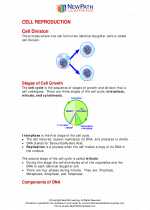 Cell Reproduction
Cell Reproduction  Activity Lesson
Activity Lesson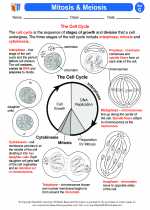 Mitosis & Meiosis
Mitosis & Meiosis  Worksheet/Answer key
Worksheet/Answer key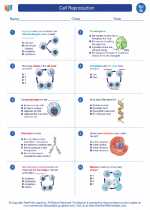 Cell Reproduction
Cell Reproduction  Worksheet/Answer key
Worksheet/Answer key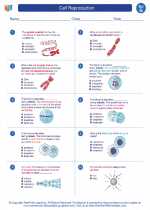 Cell Reproduction
Cell Reproduction  Worksheet/Answer key
Worksheet/Answer key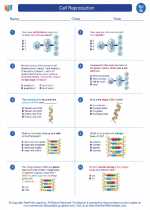 Cell Reproduction
Cell Reproduction  Vocabulary/Answer key
Vocabulary/Answer key Cell Reproduction
Cell Reproduction  Vocabulary/Answer key
Vocabulary/Answer key Cell Reproduction
Cell Reproduction  Vocabulary/Answer key
Vocabulary/Answer key Cell Reproduction
Cell Reproduction  Vocabulary/Answer key
Vocabulary/Answer key Cell Reproduction
Cell Reproduction  Vocabulary/Answer key
Vocabulary/Answer key Cell Reproduction
Cell Reproduction  Vocabulary/Answer key
Vocabulary/Answer key Cell Reproduction
Cell Reproduction  Vocabulary/Answer key
Vocabulary/Answer key Cell Reproduction
Cell Reproduction  Vocabulary/Answer key
Vocabulary/Answer key Cell Reproduction
Cell Reproduction 

 Activity Lesson
Activity Lesson
 Worksheet/Answer key
Worksheet/Answer key
 Worksheet/Answer key
Worksheet/Answer key
 Worksheet/Answer key
Worksheet/Answer key
 Vocabulary/Answer key
Vocabulary/Answer key
 Vocabulary/Answer key
Vocabulary/Answer key
 Vocabulary/Answer key
Vocabulary/Answer key
 Vocabulary/Answer key
Vocabulary/Answer key
 Vocabulary/Answer key
Vocabulary/Answer key
 Vocabulary/Answer key
Vocabulary/Answer key
 Vocabulary/Answer key
Vocabulary/Answer key
 Vocabulary/Answer key
Vocabulary/Answer key

The resources above cover the following skills:
LIFE SCIENCE
From Molecules to Organisms: Structures and Processes
Gather and synthesize information to explain how prokaryotic and eukaryotic cells differ in structure and function, including the methods of asexual and sexual reproduction.